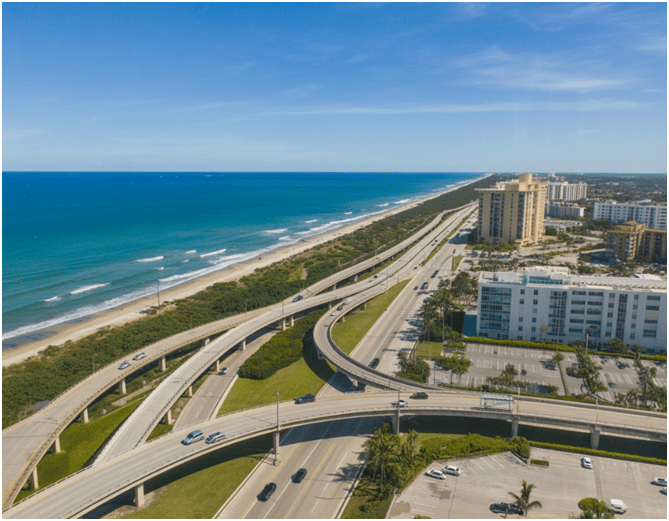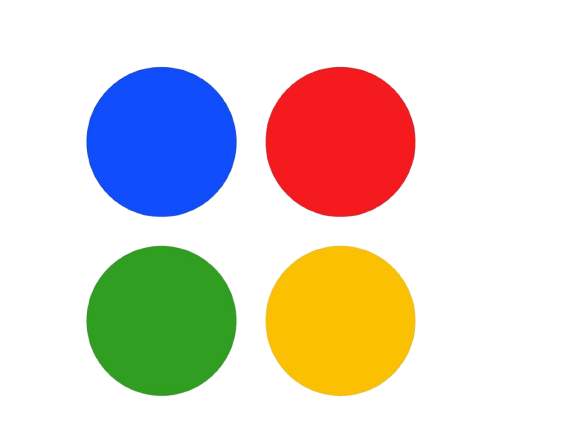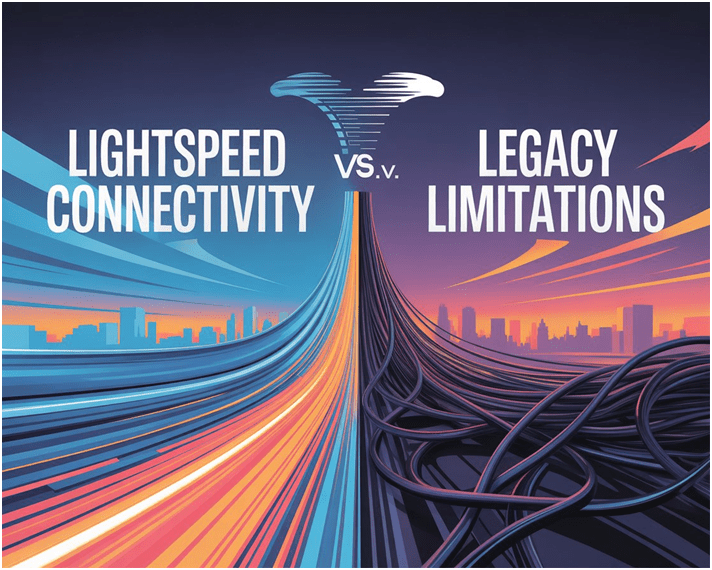Running a business in Boca Raton means staying connected. Whether you’re taking customer calls, running digital ads, or managing remote staff, internet reliability matters. But with two main options—fiber and cable—it’s easy to get stuck wondering which one is the right fit.
This guide breaks it down without the tech jargon. You’ll learn how both options really work, how they perform in real business settings, and what Boca Raton businesses should consider before deciding.
Understanding the Basics: What Is Fiber and What Is Cable?
The transmission of data in fiber internet is through light signals. This type of connection is highly reliable, and its speed is very commendable. On the other hand, cable internet uses similar coaxial cables to those of traditional TV, but it has been around for a longer period and is still widespread.
Although both are quick, they operate differently. Fiber is able to transmit data at higher speeds, most of the time in terms of uploading. It may cost less and be easier to get a connection with cable, but it slows down when too many people are using it.
When you compare these two options, always consider what exactly your business service provider gives you, and not just what they claim in their advertisement.
Boca Raton’s Current Infrastructure: What’s Actually Available?

In some parts of Boca Raton, fiber is available, but it’s not everywhere. You’re more likely to find fiber in new developments, office parks, and commercial hubs like those near Glades Road or Town Center Mall. Older business zones closer to US-1 and Palmetto Park Road still rely heavily on cable.
If your business is in a shared building or an older commercial space, chances are, cable is what’s pre-installed. That doesn’t mean fiber isn’t possible—it just may need extra setup or cost.
Before making a decision, it’s a good idea to check with providers about availability in your exact location. Some buildings may even support both, giving you more options to choose from when reviewing your business internet service.
Speed Isn’t Everything—What Your Business Actually Needs
A large number of internet packages lay emphasis on download speeds. However, this is not all there is to it for many enterprises; they also require good upload speed. In case you engage in frequent activities like file sharing, video conferencing, or cloud backups, then you will need high-performance internet that can handle uploads as well.
Fiber optic communication is known for providing what are referred to as symmetrical speeds — this implies that both download and upload speeds are equal most of the time. On the other hand, cable connections have lower upload speeds, which may lead to congestion at certain periods of the day.
To ensure that you get just what you require and nothing extra, take time to consider which tasks your team performs through the internet on a daily basis. If all you use are web browsers and email, then you should go for cable. However, if you use tools that entirely rely on internet connections, such as cloud storage or Zoom, then your average speed requirements will be more than usual.
Comparing Performance in Real-World Scenarios
Assuming that you direct a marketing agency consisting of five employees in Boca Raton. Your day is packed with uploading videos, participating in video conferences and collaborating through shared files. The fiber will offer smooth operations on your side, lower delays as well as enhance the overall link stability.
On the other hand, imagine yourself as the owner of a small retail store. You depend upon internet connection mostly for POS systems, online ordering and some minor admin tasks. Cable should suffice for this. Nonetheless, if during peak hours your connection just slows down or goes off completely then it may not be because of the kind of internet you are using but rather related to your configuration. Poor placement of routers or outdated hardware cause most Wi-Fi issues today. Nevertheless upgrading to fiber will not help fix those unless you deal with setting up rightly.
Downtime, Maintenance, and Reliability in Boca Raton
South Florida weather can cause service interruptions, especially during storms. In general, fiber is better at bouncing back after outages. It’s built to be more resistant to interference and can handle large data flows without congestion.
Cable lines are more affected by traffic spikes. So if many businesses around you are using the same cable infrastructure, you may see slower speeds when everyone is online.
If your business can’t afford internet downtime, consider if a dedicated internet line might be worth the cost. Some providers offer it in Boca Raton, especially in office parks and commercial buildings that cater to growing teams.
Price Comparison: Initial Setup vs Long-Term Costs
Cable internet often has lower upfront costs. Setup is usually quick, and monthly rates are cheaper. Fiber can cost more to install, especially if your building doesn’t already support it.
However, fiber might actually save you money in the long run. Why? Because faster upload speeds and lower downtime mean your team gets more done. If your business often struggles with speed issues or dropped calls, fiber reduces those productivity losses.
Some providers in Boca Raton are open to negotiation. If you’re signing a long-term contract, it’s worth asking if you can lock in better internet rates —or get installation waived.
Compatibility With Your Setup: VoIP, Cloud Apps, and Static IPs
Fiber internet pairs better with cloud-based tools. It also handles VoIP phone systems more smoothly, especially if you’re running multiple lines or using advanced call features.
Cable can still support these setups, but it may cause problems during high-traffic periods. You might notice dropped calls, laggy apps, or delays when switching between tabs.
If your business uses remote access, cloud backups, or internal servers, check whether your plan includes a static IP. Some setups require it. That’s why checking your VoIP and internet compatibility early on can prevent headaches later.
How to Choose: A Quick Checklist for Boca Raton Business Owners
Not sure where to start? Use this local-focused checklist to decide:
- Is fiber available in your building or area? Check with providers, not just maps.
- How much do you upload or stream? Video, cloud storage, and backups push fiber ahead.
- Do you share bandwidth with others in your building? Cable slows down during peak use.
- Can your business handle downtime? If not, fiber or a dedicated connection is safer.
- What’s your setup like? For advanced phone systems or static IP needs, fiber is usually a better fit.
Final Word: Fiber May Win on Performance, But Cable Still Has a Place
Fiber internet gives you speed, stability, and future-proof features. But it isn’t always available—or necessary. Cable internet is still a solid option for many smaller businesses in Boca Raton that don’t depend on heavy uploads or real-time collaboration.
At the end of the day, choose based on how your team works, what tools you use, and how critical internet is to your operations. The right internet setup isn’t just about what’s fastest. It’s about what helps your business run smarter, day after day.


